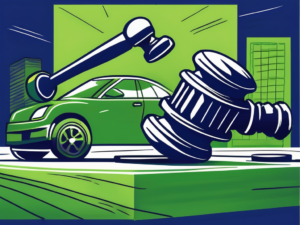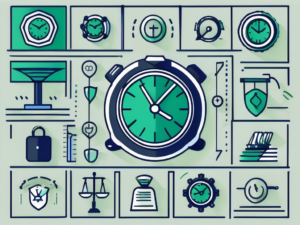Talk to Sales: (401) 200-6026

In today’s highly competitive automotive industry, building and maintaining strong customer relationships is essential for dealership success. One powerful tool that can help dealerships achieve customer relationship excellence is a customer relationship management (CRM) system. By leveraging advanced CRM tools and strategies, dealerships can streamline their operations, boost sales, and provide exceptional customer service. In this article, we will explore the importance of CRM in dealerships and discuss the essential CRM tools that every dealership should have. We will also provide valuable insights on how to choose the right CRM for your dealership and offer valuable tips on implementing and measuring the impact of CRM on customer relationships.
Understanding the Importance of CRM in Dealerships
CRM, which stands for Customer Relationship Management, plays a crucial role in enhancing customer retention and loyalty in dealerships. By centralizing customer data and interactions, dealerships can gain a comprehensive understanding of each customer’s preferences, history, and needs. This wealth of information enables dealerships to personalize their interactions and provide a superior customer experience. In turn, this leads to improved customer satisfaction, increased customer loyalty, and higher customer lifetime value.
But what exactly does CRM entail? It goes beyond just a software system. CRM is a strategic approach that focuses on building and maintaining strong relationships with customers. It involves capturing and analyzing data about customers’ interactions with the dealership, such as purchases, inquiries, and service visits. This data is then used to tailor marketing efforts, improve customer service, and drive sales.
One of the key benefits of CRM in dealerships is its ability to identify opportunities for upselling and cross-selling. By tracking customer purchases and preferences, dealerships can identify patterns and make targeted recommendations to customers. For example, if a customer recently purchased a new car, the dealership can use CRM data to suggest accessories or add-ons that complement their purchase. This not only increases revenue for the dealership but also enhances the customer’s overall experience.
The Role of CRM in Customer Retention
Customer retention is a top priority for dealerships, and CRM plays a crucial role in achieving this goal. By leveraging CRM tools, dealerships can automate follow-up communications with customers, ensuring that they receive timely reminders for routine maintenance, tire rotations, and other service needs. This proactive engagement not only helps customers stay on top of their vehicle’s maintenance but also strengthens the relationship between the dealership and the customer.
Furthermore, CRM enables dealerships to provide personalized and targeted marketing campaigns to existing customers. By analyzing customer data, dealerships can identify specific segments or groups of customers and tailor marketing messages accordingly. For example, if a dealership has a group of customers who are due for an upgrade on their current vehicle, they can create a targeted campaign offering special incentives or promotions. This not only increases the likelihood of a sale but also shows customers that the dealership values their business.
Sell cars on the lot faster with AutoRaptor
Know if we’re the right fit within 10 minutes
How CRMs Enhance Dealership Operations
CRM tools not only benefit customer-facing activities but also enhance dealership operations as a whole. By analyzing sales data and performance metrics, dealerships can identify sales trends, set realistic sales targets, and track progress towards these goals. This data-driven approach allows dealerships to make informed decisions about inventory management, pricing strategies, and sales tactics.
Additionally, CRM systems enable dealerships to automate time-consuming tasks, such as data entry and report generation. This frees up staff to focus on more value-added activities, such as building relationships with customers or providing personalized service. By streamlining administrative tasks, CRM helps improve overall efficiency and productivity within the dealership.
In conclusion, CRM is not just a software system, but a strategic approach that helps dealerships enhance customer retention, personalize interactions, and improve overall operations. By leveraging CRM tools and data, dealerships can provide a superior customer experience, increase customer loyalty, and drive long-term success.
Essential CRM Tools for Dealerships
When it comes to selecting a CRM system for your dealership, it’s important to consider the tools and features that are most relevant to your specific needs. Below are three essential CRM tools that every dealership should have:
Contact Management Features
Efficient contact management is crucial for building and maintaining strong customer relationships. A good CRM system should provide robust contact management features, allowing dealerships to store and organize customer information in a central database. This database should include not only basic contact details such as names and addresses but also comprehensive customer profiles that capture purchase history, communication preferences, and other relevant data.
Sales Tracking and Forecasting
A robust CRM system should enable dealerships to track and analyze sales data in real-time. By monitoring key sales metrics such as lead conversion rates, average deal size, and sales cycle length, dealerships can gain valuable insights into their sales performance. This data can then be used to identify areas for improvement, set realistic sales targets, and make data-driven decisions to drive sales growth.
Customer Service and Support Tools
Exceptional customer service is a key differentiator for successful dealerships. A CRM system with robust customer service and support tools can help dealerships streamline their customer service processes and provide prompt, personalized support. These tools should include features such as ticket management, case tracking, and automated response capabilities. By efficiently resolving customer issues, dealerships can enhance customer satisfaction and loyalty.
Sell cars on the lot faster with AutoRaptor
Know if we’re the right fit within 10 minutes
Selecting the Right CRM for Your Dealership
Evaluating CRM Software Providers
When selecting a CRM system for your dealership, it’s important to thoroughly evaluate different CRM software providers. Look for providers with a proven track record in the automotive industry and a strong understanding of dealership operations. Consider factors such as ease of use, scalability, integrations with existing systems, and ongoing support and training options.
Key Considerations in CRM Selection
When evaluating different CRM systems, consider the specific needs of your dealership. Determine which tools and features are most relevant to your operations and customer base. Additionally, consider the scalability of the CRM system to ensure that it can support your dealership’s growth and changing needs in the long term.
Implementing CRM Tools in Your Dealership
Implementing a CRM system is a significant undertaking that requires careful planning and execution. Below are two key steps to successfully implement CRM tools in your dealership:
Training Staff on CRM Usage
Proper training is crucial to ensure that dealership staff can effectively utilize the CRM system. Provide thorough training to all staff members who will interact with the CRM, including salespeople, service advisors, and customer support representatives. Offer ongoing training opportunities to keep staff members up to date with new features and best practices.
Monitoring and Adjusting CRM Strategies
Regularly monitor CRM usage and performance to identify areas for improvement and make necessary adjustments. Analyze data quality, user adoption rates, and key performance indicators (KPIs) to assess the effectiveness of your CRM strategies. Utilize the insights gained from these evaluations to refine your CRM strategies and ensure that they continue to meet the evolving needs of your dealership and customers.
Measuring the Impact of CRM on Customer Relationships
Key Performance Indicators for CRM Success
Measuring the impact of CRM on customer relationships requires tracking key performance indicators (KPIs). Some essential KPIs to consider include customer acquisition rates, customer retention rates, customer satisfaction scores, and average response times to customer inquiries. Regularly review these metrics to assess the effectiveness of your CRM strategies and make data-driven decisions to continuously enhance customer relationship excellence.
The Long-Term Benefits of CRM Implementation
Implementing a CRM system is a long-term investment that can yield significant benefits for your dealership. By leveraging the right CRM tools and strategies, dealerships can achieve customer relationship excellence, leading to increased customer satisfaction, loyalty, and ultimately, higher sales and profitability. In today’s competitive automotive market, a well-implemented CRM system is not just a luxury – it’s a necessity for dealerships that want to thrive in the digital age.
Want to improve your sales and move cars off the lot faster? Book a test drive with AutoRaptor to see how our simple dealership CRM software can help you close more deals effectively.
Subscribe to our Newsletter
Resources to help your dealership convert more leads into sales, retain more customers, and market inventory smarter, straight to your inbox every Sunday.




